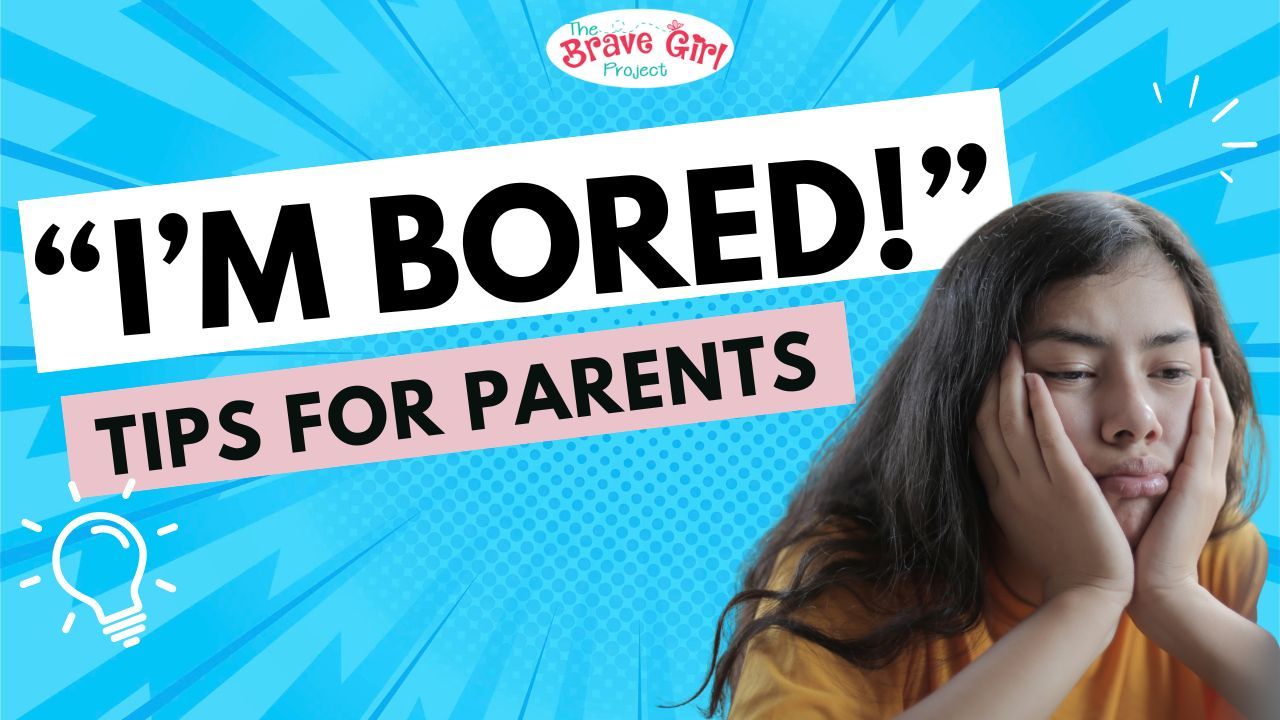The Brave Girl Project Blog
Helping tween and teen girls—and their parents—navigate friendship challenges and build confidence. Find the tools and resources you need to support your daughter and empower her to live bravely.
It’s the cry we hear a lot by mid-July: “I’m bored!”
And as parents, it can be tempting to swoop in with a solution — a camp, a screen, a plan, a project.
But what if we didn’t?
What if we took a deep breath, nodded with empathy, and saw boredom not as a problem — but as an opportunity?
Here’s the...
As I prepare to watch my son graduate from high school (wait - how did the time go by so quickly!) and step into a new chapter of his life, I’ve been reflecting on the evolving relationship between parents and teens.
Recently, I listened to Lisa Damour’s latest podcast episode, "How to Stay Connec...
Happy Mother's Day
As we head into Mother’s Day weekend, I want to take a moment to honor you—the moms, stepmoms, grandmothers, aunties, mentors, big sisters, teachers, coaches, and role models who show up every day for the girls in your lives.
Your steady support, thoughtful guidance, and uncondi...
As we move into the final stretch of the school year, many families are celebrating seasons of reflection, renewal, and hope. These themes feel especially meaningful as our daughters return from spring break or simply push through the long weeks ahead.
The last months of the school year can feel to...
Have you ever watched your daughter hesitate before saying “yes” to a birthday party, school dance, or group hangout—not because she’s shy, but because she knows someone will be there who makes her feel uncomfortable?
Maybe it’s a former friend who’s suddenly gone cold, a group that’s subtly pushin...
Friendships are a huge part of a girl’s life, but not all friendships are healthy. Sometimes, a friend may not be as supportive as they seem, leaving your daughter feeling confused, hurt, or unsure of where she stands.
In my latest episode of The Brave Girl Project Podcast, I dive into the trick...
Why Community Support is Essential for Middle and High School Girls
Friendship challenges can feel overwhelming for middle and high school girls. From shifting social circles to the pressures of fitting in, these years can be a rollercoaster of emotions. One of the most powerful ways to help girls ...
As the lazy days of winter break come to an end, the thought of jumping back into the school routine can bring about a case of the back-to-school blues for students and parents alike. But worry not! We've put together effective strategies and personal tips to help make this transition smoother and m...
As we get ready to step into 2025, it's the perfect time to pause, reflect, and plan for the months ahead.
Many of us set resolutions with the best intentions, but often, we don’t have a clear plan on how to achieve them.
This year, let’s do it differently with a simple yet powerful tool that I’m...
Middle and high school can be some of the most challenging years in your daughter’s life.
Between the academic pressures, changing social dynamics, and the search for independence, these years often come with struggles to find meaningful friendships and a sense of belonging. As a parent, you may fe...
I recently helped one of my coaching clients navigate her first breakup—a painful but significant milestone for so many of us. I can still remember my own first heartbreak back in 1990. At the time, Sinead O’Connor’s Nothing Compares 2 U was all over the radio, and it quickly became my heartbreak an...
Do you have multiple teenagers living in your house?
If you do have multiple teenagers I admire you and I'm scared to even ask how many hours you spend in your car each week just driving your kids to all of their activities.
It is so hard dividing our time and attention equally when we have multi...

















